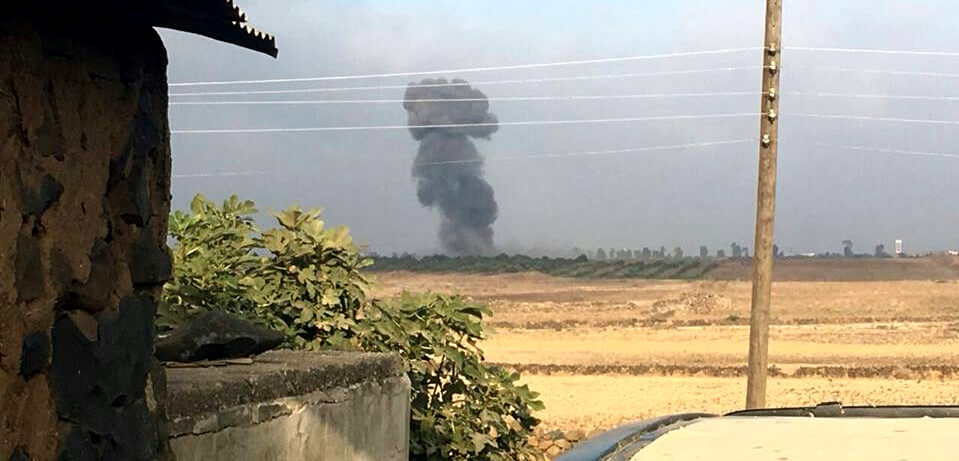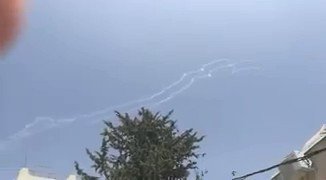NOVANEWS
Any effort made by Israel to halt the Syrian advance may have come too late, as reports have surfaced that rebels in the area have already announced their intention to surrender to Syrian forces.

The aftermath of the crash of a Syrian Air Force warplane shot down by Israeli Patriot missiles in the Yarmouk Basin, close to border the border of the Golan Heights. Photo | Anna News
However, the Syrian government has strongly contested that assessment, stating that the jet had in fact been attacking jihadist groups along the border on the edge of the Yarmouk Valley and had never left Syrian airspace when it was shot down. Syrian state news agency SANA asserted that Israel’s attack on the jet “confirms its support for the armed terrorist groups” currently being targeted by the Syrian military as part of its successful offensive to retake southern Syria from rebel groups.

Two Patriot missiles were launched at a Syrian Sukhoi fighter jet that infiltrated about 1 mile into Israeli airspace. The IDF monitored the fighter jet, which was then intercepted by the Patriot missiles. pic.twitter.com/owL4Pm7zER
A report on Israeli Army Radio, cited by RT, seemed to confirm the Syrian government account, as it stated that the jet likely crashed on the Syrian-side of the border.
Chronic Israeli involvement around the Golan border
If Israel did shoot the plane down in Syrian airspace, it certainly would not be the first time Israel has intervened in the region in order to protect extremist Islamist rebel groups that have controlled the Syrian side of the border for the past several years. Indeed, Israel is largely responsible for the continued existence of these groups, having cultivated their presence in the area, as a so-called “buffer zone” against Syrian-allied Iranian and Lebanese forces, under the orders of former Israeli Defense Minister Moshe Ya’alon.
Furthermore, Israel has been shown to have supplied these groups with food and weapons and has bused injured rebels into Israel for medical treatment before sending them back to the Syrian border. In some cases, Israel even financed the groups entirely — as is the case with the rebel group Fursan al-Golan (Knights of the Golan), which has received approximately $60,000 per year from the Israeli government since 2013.
Given the Syrian military’s recent successes in reclaiming rebel-held parts of Southern Syria, and especially its recent advances in strategic areas near the Israeli-occupied Golan Heights, Israel is likely eager to slow this “quick advance” wherever it can in order to prevent the collapse of the buffer zone in which it has heavily invested for over the past five years. Israel is also likely eager to halt this advance in light of past statements made by Syrian President Bashar al-Assad — who, prior to the war, had promised to retake the occupied Golan Heights from Israel and return it to Syria.
Ultimately, any effort made by Israel to halt the Syrian advance may have come too late, as reports have surfaced that rebels in the area have already announced their intention to surrender to Syrian forces. However, under the pretext of an alleged Iranian and Lebanese military presence along its border, Israel may yet intervene to remake its so-called “buffer zone” by force.




